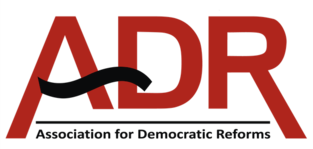A study by the Association for Democratic Reforms and the National Election Watch found that the main categories under which political parties declared their expenses were publicity, travel, other/miscellaneous, and the spend on candidates.
Indian elections are akin to a grand festival, with elaborate ‘rituals’ stretching over the days leading up to the D-Day.
The list of activities and tangibles in this extravaganza is a long one: posters, hoardings, banners, leaflets, tableaux, processions, street plays, family gatherings, conventions, and, of course, the candidates’ open-jeep tours of their constituencies.
The expenditure on these varies, depending on the party’s and candidate’s budgets. However, it’s certain that campaign expenses as well as illegal incentives offered to voters in the form of cash and goods have been surging.
According to Delhi-based think tank CMS, the 2019 general election in India was the most expensive one ever recorded globally, with a total spend of about Rs 55,000-60,000 crore. The election process lasted nearly 75 days, with polling conducted in seven phases.
Analysts have no doubt that the current one will surpass the record.
A senior Congress leader told TNIE that expenditures shoot up in the final days leading to the polls, based on the intensity of the competition. He noted that there were 1,200 to 1,300 booths in each Lok Sabha constituency of Kerala. The district units of parties provide campaign materials, and cover expenses on logistics, manpower, refreshments, etc.
“We have to provide each candidate with 70,000 to 1,35,000 posters for a single round in one Lok Sabha seat, and there can be up to six or seven rounds,” he said.
“Additionally, there are family meetings. Squads of three-four party members visit houses. These members have to be given a daily allowance.”
The leader highlighted that, nowadays, a heavy chunk is spent on digital campaigns. “This is mostly managed by the central leadership, or the candidates who can afford it,” he added.
“The amount spent by a party candidate in a constituency, on an average, can be 7-12 times more than the Rs 95 lakh prescribed by the Election Commission. Some candidates spend up to Rs 50 crore.”
A study by the Association for Democratic Reforms and the National Election Watch found that the main categories under which political parties declared their expenses were publicity, travel, other/miscellaneous, and the spend on candidates.
In the 2004, 2009, and 2014 Lok Sabha elections (combined), national parties spent 50.58% of their total expenditure on publicity, 19.68% on travel expenses, 15.43% on candidates, and 14.31% on other expenses.
Over the 10-year period, expenditure on publicity increased by 641%, travel by 802%, and the spend on candidates by 416%.
Political observer N M Pearson said candidates of mainstream parties spend at least Rs 20 crore each during general elections, and this amount seemed to be on the rise.
“A politically aware society would detest the influence of money power. They would vote based on the political views of the candidates,” he said.
“When society moves away from political awareness, money power starts to dominate. Voters start accepting money and gifts for votes. Although Kerala is currently safe from such practices, going by the current trends, I foresee a downfall.”
Notably, a survey conducted by the department of political science of Sree Kerala Varma College, Thrissur, found that the use of money power in elections was indeed increasing. However, the study noted that citizens were concerned about its impact.
“People recognise that candidates spend far more money in elections than the legal limits prescribed by the Election Commission,” said Prof. Pramod C R, who was part of the study.
“Participants in the survey welcomed the Supreme Court order on electoral bonds. They are aware that money power is corrupting the system.”
Economic impact
Barna Ganguli of the Bihar Institute of Public Finance and Policy noted that elections “generate income for people in the informal sector”. She added the sudden flurry of political activity and increased cash flow during elections, though not immediately apparent, contributed incrementally to the country’s overall economy. “A significant amount of money is spent on ads during elections. This injects cash into the economy,” Barna said. “Additionally, political parties hire analysts, consultants, content creators, etc., during election season. This, again, means an increase in money flow. Moreover, the government spends substantial sums on security, logistics, and administration during elections.”






